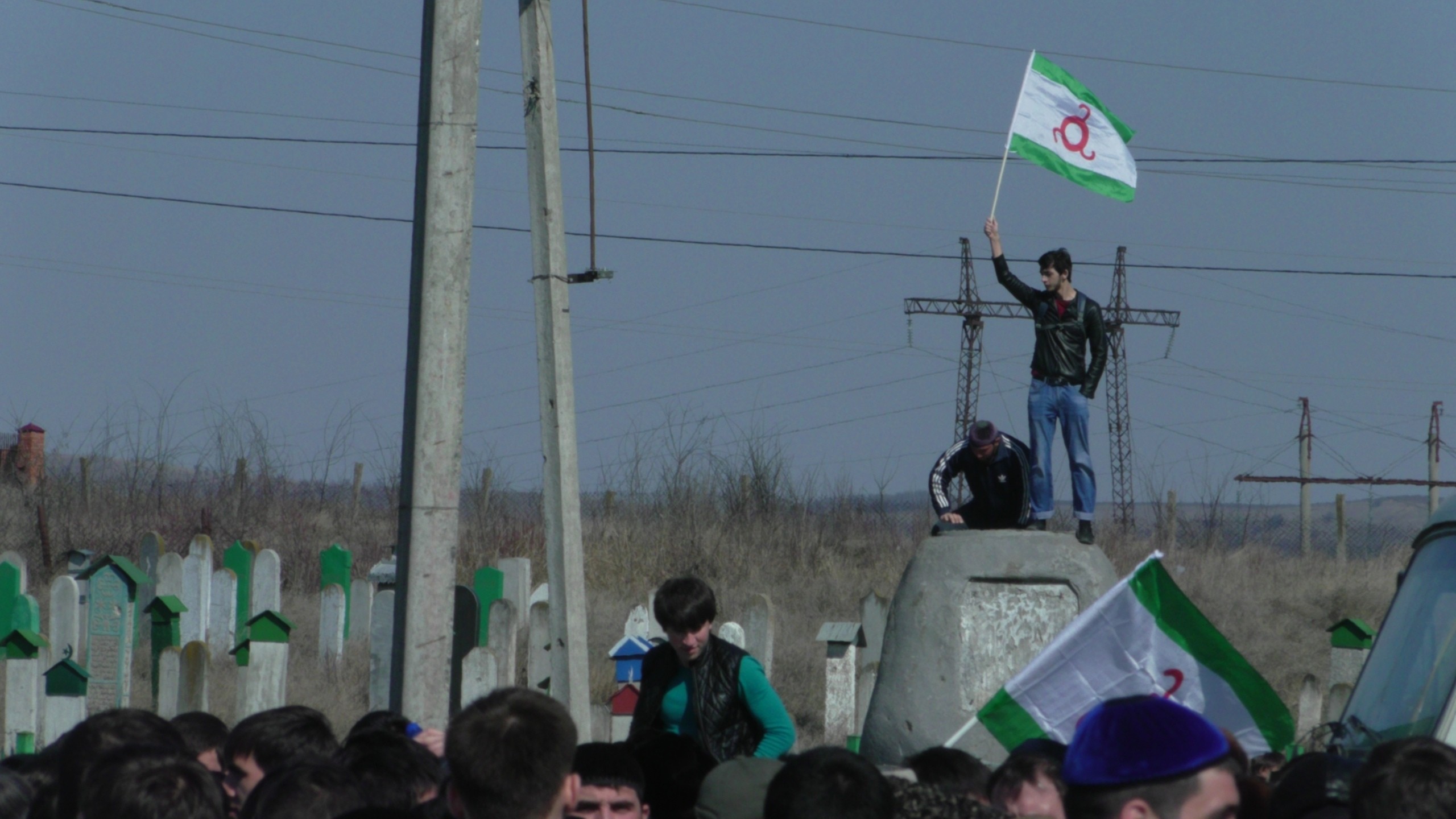

Four leading activists in the protest movement in Ingushetia against the Ingush-Chechen land deal have been hit with extremism charges.
Russian authorities charged Akhmed Barakhoyev with ‘organising an extremist organisation’ on Wednesday; he faces 6–10 years in prison if convicted.
Barakh Chemurziyev, Zarifa Sautiyeva, and Ismail Nalgiyev were charged the following day with ‘participating in an extremist organisation’; they face 2–6 years in prison.
The four have been among the leading figures of the protests against the land deal between the Russian republics Ingushetia and the Chechnya.
The agreement was signed by the heads of two republics — Ramzan Kadyrov and Yunus-Bek Yevkurov — without holding a referendum, which caused large-scale protests in Ingushetia from October 2018 to March 2019.
At a rally in March, there was a clash between protesters and the security forces after which 33 participants of the rally were arrested.
Several of the defendants who chose to cooperate with investigators were convicted in December.
The Memorial Human Rights Centre has recognised six of those arrested, including the four charged last week, as political prisoners.
‘Extremist organisation’
The prosecutor’s decisions said that Barakhoyev, along with two others, ‘created an extremist organisation’ to remove Yunus-Bek Yevkurov, who was then the head of Ingushetia, from power.
The decisions said that in October 2018, they created and headed the Ingush Committee of National Unity ‘to cover up the activities of this extremist organisation’. According to them, it included Ismail Nalgiyev, Barakh Chemurziev, Zarifa Sautiyeva, and others.
According to prosecutors, the group’s methods included ‘planning, preparing, and organising mass events’, ‘creating video messages’, and ‘distributing these videos on the Internet, encouraging citizens to commit illegal acts, obstructing the legitimate activities of government officials’.
The decision also states that ‘members of the extremist organisation openly and cynically demonstrated their political hostility to the head of the republic’, ‘manipulated with ethnic customs, including the traditional submission of youth to the will and instructions of the older generation’, ‘provocatively appealed […to] national unity expressed in the form of participation in a mass protest movement against the current head of the republic’.
This was done, the prosecutors said, to ‘destabilise the socio-political situation in the republic’.
‘Vague wording’
Magomed Abubakarov, a lawyer representing Barakh Chemurziyev, told OC Media that the charge was ‘not actually brought against him, but the decision was served’. He said that this is a violation of the Code of Criminal Procedure.
‘The investigator has to read out the accusation and explain the points that will not be clear to the accused or to his lawyer’, Abubakarov said. He added that, despite the request of Chemurziyev, this was not done.
According to Abubakarov, the charges do not spell out the actions of the accused.
‘It is not clear what he has done wrong — was it participating in the rally?’
‘Or organising this rally? Or maybe participating [in the rally] and making comments to reporters?’
During the questioning, Chemurziyev challenged prosecutors, pointing out alleged violations made by the investigation. He also asked that the actions that were considered extremist be named, and said the case was ‘ordered [from above] and politically motivated’.
Bilan Dzugayev, a lawyer representing Zarifa Sautiyeva, told OC Media that the actions of his client were described ‘quite abstractly and vaguely’.
‘[The prosecutor’s decision stated] that she coordinated and maintained contact with the diasporas’.
‘An indictment must be very specific — if someone was a coordinator, then how did they coordinate, negotiate, or contact [someone] on a particular day?’, Dzugayev said.
‘We asked for clarification, [and] after the clarification we will testify’, he added.
‘Any of their actions can be used as evidence’
According to Dzugayev, within the accusations levelled against his client, any of their actions can now be interpreted ‘within the framework of this [extremist] organisation’.
‘They created such a peculiar matrix where all their [activists’] actions, appeals, videos, anti-corruption investigations, and so on can now be inserted’, he said.
Dzugayev said that the protest leaders were not exempted from the charges brought against them earlier — the use of violence against government officials with serious bodily harm and the organisation of the use of violence.
‘Regarding them, the investigation also did not specify anything, the same vague accusation remains to this day’, he said.
Abubakakarov said that he and the lawyers of other activists realised in the summer that the main defendants in the case would be charged with new articles since the case was ‘falling apart’ due to a lack of evidence of a crime.
‘We assumed that [it] would be connected with [their] appeals. I was preparing for the worst’.
According to him, the investigating authorities were ‘just the executors’ of the aims of the government.
‘They have one goal — to isolate [the accused] and get the indictments’, he said.



